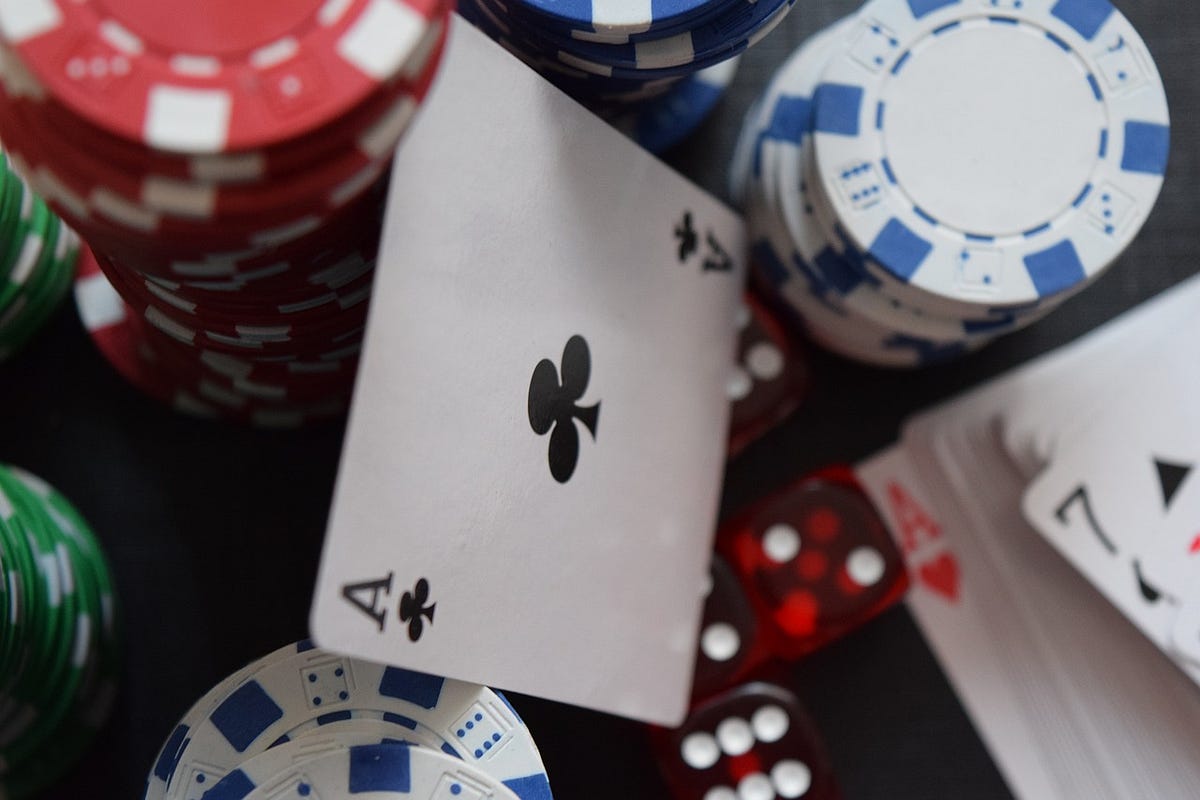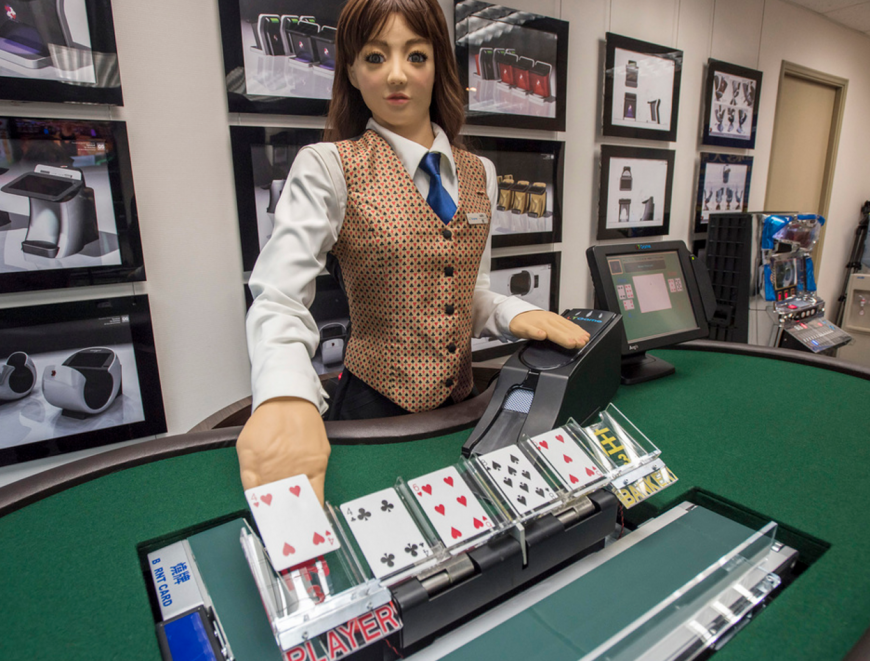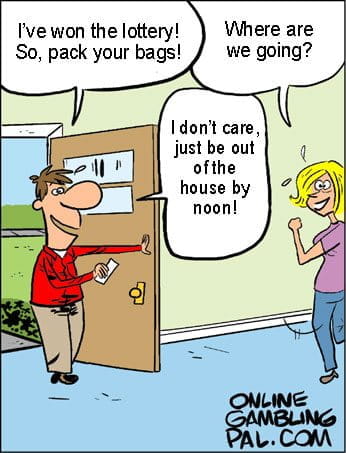How do Poker Dealer salaries stack up to other jobs across the country? Based on the latest jobs data nationwide, Poker Dealer's can make an average annual salary of $21,810, or $10 per hour. This makes it an Above Average Salary. On the lower end, they can make $17,580 or $8 per hour, perhaps when just starting out or based on the state you. What is the average wage of a poker dealer? According to Glassdoor, poker dealer salaries in Las Vegas, Nevada range from $18,000 to $49,000 annually with the average salary amount clocking in at $20,991 per year. In California, the average base pay for poker dealers is $10 per hour or up to $38,122 per year.
- The national average salary for a Poker Dealer is $20,413 in United States. Filter by location to see Poker Dealer salaries in your area. Salary estimates are based on 130 salaries submitted anonymously to Glassdoor by Poker Dealer employees.
- The national average salary for a Poker Dealer is £16,344 in United Kingdom. Filter by location to see Poker Dealer salaries in your area. Salary estimates are based on 10 salaries submitted anonymously to Glassdoor by Poker Dealer employees.
Poker Dealers: Is a Casino Career in the Cards?
If you enjoy playing poker or watching it on television, a career as a poker dealer might be a good fit for you. Working as a dealer allows you to interact with many different people and enjoy a good game of poker without running the risk of losing all your money. Because casinos operate 24/7, many parents who work as dealers can schedule shifts around their children's schedules.
Job Description
As the job title suggests, the primary duty of a poker dealer is to deal out cards to players. Dealers also help manage the game by greeting new players, exchanging cash for poker chips, collecting and paying out chips during the game, and monitoring the game for cheating.
Education Requirements

To become a casino dealer, you'll usually need to have a minimum of a high school diploma or GED. From there, you can go to dealer school and complete a training course in poker dealing. These courses typically range from four to eight weeks in length. Many gaming experts note, however, that one of the primary requirements for being a good dealer is that you're a 'people person' and have a positive attitude. That's why why some casinos will ask job candidates to come in for an audition so their potential supervisors can get a better understanding of their personality and potential.
Depending on the state or county that you work in, you may need to obtain a gaming license. Qualifications for a license vary, but you will likely have to prove your identity, undergo a background check and pay a licensing fee.
The average salary for dealers is a complicated issue. The United States Bureau of Labor Statistics does not differentiate dealers of the various types of casino games when calculating wages. The BLS's statistics show that, as of May 2016, the median annual wage for a casino dealer was $19,290. This means that 50 percent of dealers made more than $19,290, and 50 percent made less.

However, as PayScale.com notes, dealers can also earn money from tips. As a result, the take-home income of poker dealers depends on where the dealer works and her overall job performance.

About the Industry
Poker dealers work in casinos and poker rooms. Some of these establishments are in hotels, resorts or even on cruise ships. In other cases, they may be freestanding and not attached to a hospitality business. Casino and poker room owners typically want to keep their players comfortable, so these rooms are usually climate-controlled. Depending on the laws where you work, however, you may be exposed to secondhand smoke while you work. The smoke may be somewhat mitigated if the room has a good air filtration system.
Casinos are typically open all the time, which means that employees usually work in shifts. As a working parent, you may be able to schedule your work hours to accommodate your family's needs. As you gain experience, you may develop a good reputation in the poker community and may be invited to deal at tournaments. This will require travel in many cases, but you may be able to earn more at these tournaments than you would at a casino.
Years of Experience
As a dealer, you can expect to earn more as you gain job experience. A survey of casino dealers by PayScale.com shows a positive earnings trend for workers who continued at their jobs. Below is a table showing the correlation between years in the profession and wages:
- 0–5 years: $38,000
- 5–10 years: $42,000
- 10–20 years: $43,000
- 20 years: $59,000
Job Growth Trend
Poker Dealer Salary
The BLS predicts that the potential for job growth for gaming dealers is 1 percent between 2016 and 2026. This growth is slower than average and may be the result of more consumers turning to online gambling, as well as a reluctance on the part of developers to open new casinos. Finding a job as a dealer will be easier for those who are licensed professionals and already working in the profession.
Why would you want to become a poker dealer?
There are a few reasons that poker players, in general, decide to become poker dealers. One of those reasons, the most obvious reason, is that dealing poker is very profitable – much more profitable than most people realise.
Think of it like this, it's pretty much good practice to toss the dealer a buck every time you win a hand right? Not everyone does it, but most of us do, some toss more especially the travellers and other people that don't play the game on a regular basis.
How much do poker dealers earn?
For right now, let's go with that, an average of $1 per hand in tips. We won't even take into consideration tourists and other big tipping games. Now we'll consider another fact about dealing poker, the fact that poker dealers are expected to deal an average of 30 hands per hour minimum.
So, assuming an average of $1 tip per hand, 30 hands per hour means poker dealers are making about $30 an hour in tips plus very small paychecks they are taking from the casino.
In Oregon, for instance, at Chinook Winds Casino poker dealers are paid $8.80-$9.48 plus tips. Comparatively, Table Mountain Casino in California pays new dealers $8 plus tips. Dealers in Oregon must pass an audition at the casino as well as undergo an extensive background investigation, pass a drug test and receive a licence from the Gambling Commission.
There are lots of openings for tournament dealers; however, cash game dealer positions are actually pretty hard to come by. New gambling law indiana.
How do I become a certified poker dealer?
The most common way to become a certified poker dealer is to take a class on dealing poker. The length of poker dealing classes varies from as little as two weeks to as many eight weeks. The price of the classes varies almost as much as the length required in them.
The ease of finding a class and being able to afford that class largely depends on where you're located. For instance, in Oregon at Chinook Winds Casino, classes are offered free during the slower months in effort to gear up for busier summer events.
Classes at Chinook Winds Casino are usually a couple of weeks long with as much follow up as is required for a new dealer to pass an audition. Caesars in Las Vegas also offers free poker dealer classes when they're gearing up for the World Series of Poker season. These classes are three weeks long, are followed up by auditions, background checks and licensing by the Nevada Gaming Commission.
The average price to learn any new casino game seems to range from these free classes, that aren't offered regularly, on up to about $1500 with a guaranteed job placement after you've graduated at the larger more expensive schools. It's been said that the best dealer schools teach new dealers how to deal multiple games including Chinese Poker.
If you are curious what sort of things you might learn at a professional Holdem Poker dealer school check out videos on YouTube for learning to deal casino poker.
Dealing these major tournament events offers these new dealers a venue in which they can hone their skills, become ready to pass stricter auditions working in places such as Atlantic City, Las Vegas or aboard poker cruise ships.
Obtaining your State Dealers Licence
Once you've gotten the necessary training, and a position at a casino, you'll need to become licenced by the state where you're to be employed. This process generally involves proving your citizenship via the same documents employee's use to prove their right to work legally within the United States and passing a criminal background investigation.


To become a casino dealer, you'll usually need to have a minimum of a high school diploma or GED. From there, you can go to dealer school and complete a training course in poker dealing. These courses typically range from four to eight weeks in length. Many gaming experts note, however, that one of the primary requirements for being a good dealer is that you're a 'people person' and have a positive attitude. That's why why some casinos will ask job candidates to come in for an audition so their potential supervisors can get a better understanding of their personality and potential.
Depending on the state or county that you work in, you may need to obtain a gaming license. Qualifications for a license vary, but you will likely have to prove your identity, undergo a background check and pay a licensing fee.
The average salary for dealers is a complicated issue. The United States Bureau of Labor Statistics does not differentiate dealers of the various types of casino games when calculating wages. The BLS's statistics show that, as of May 2016, the median annual wage for a casino dealer was $19,290. This means that 50 percent of dealers made more than $19,290, and 50 percent made less.
However, as PayScale.com notes, dealers can also earn money from tips. As a result, the take-home income of poker dealers depends on where the dealer works and her overall job performance.
About the Industry
Poker dealers work in casinos and poker rooms. Some of these establishments are in hotels, resorts or even on cruise ships. In other cases, they may be freestanding and not attached to a hospitality business. Casino and poker room owners typically want to keep their players comfortable, so these rooms are usually climate-controlled. Depending on the laws where you work, however, you may be exposed to secondhand smoke while you work. The smoke may be somewhat mitigated if the room has a good air filtration system.
Casinos are typically open all the time, which means that employees usually work in shifts. As a working parent, you may be able to schedule your work hours to accommodate your family's needs. As you gain experience, you may develop a good reputation in the poker community and may be invited to deal at tournaments. This will require travel in many cases, but you may be able to earn more at these tournaments than you would at a casino.
Years of Experience
As a dealer, you can expect to earn more as you gain job experience. A survey of casino dealers by PayScale.com shows a positive earnings trend for workers who continued at their jobs. Below is a table showing the correlation between years in the profession and wages:
- 0–5 years: $38,000
- 5–10 years: $42,000
- 10–20 years: $43,000
- 20 years: $59,000
Job Growth Trend
Poker Dealer Salary
The BLS predicts that the potential for job growth for gaming dealers is 1 percent between 2016 and 2026. This growth is slower than average and may be the result of more consumers turning to online gambling, as well as a reluctance on the part of developers to open new casinos. Finding a job as a dealer will be easier for those who are licensed professionals and already working in the profession.
Why would you want to become a poker dealer?
There are a few reasons that poker players, in general, decide to become poker dealers. One of those reasons, the most obvious reason, is that dealing poker is very profitable – much more profitable than most people realise.
Think of it like this, it's pretty much good practice to toss the dealer a buck every time you win a hand right? Not everyone does it, but most of us do, some toss more especially the travellers and other people that don't play the game on a regular basis.
How much do poker dealers earn?
For right now, let's go with that, an average of $1 per hand in tips. We won't even take into consideration tourists and other big tipping games. Now we'll consider another fact about dealing poker, the fact that poker dealers are expected to deal an average of 30 hands per hour minimum.
So, assuming an average of $1 tip per hand, 30 hands per hour means poker dealers are making about $30 an hour in tips plus very small paychecks they are taking from the casino.
In Oregon, for instance, at Chinook Winds Casino poker dealers are paid $8.80-$9.48 plus tips. Comparatively, Table Mountain Casino in California pays new dealers $8 plus tips. Dealers in Oregon must pass an audition at the casino as well as undergo an extensive background investigation, pass a drug test and receive a licence from the Gambling Commission.
There are lots of openings for tournament dealers; however, cash game dealer positions are actually pretty hard to come by. New gambling law indiana.
How do I become a certified poker dealer?
The most common way to become a certified poker dealer is to take a class on dealing poker. The length of poker dealing classes varies from as little as two weeks to as many eight weeks. The price of the classes varies almost as much as the length required in them.
The ease of finding a class and being able to afford that class largely depends on where you're located. For instance, in Oregon at Chinook Winds Casino, classes are offered free during the slower months in effort to gear up for busier summer events.
Classes at Chinook Winds Casino are usually a couple of weeks long with as much follow up as is required for a new dealer to pass an audition. Caesars in Las Vegas also offers free poker dealer classes when they're gearing up for the World Series of Poker season. These classes are three weeks long, are followed up by auditions, background checks and licensing by the Nevada Gaming Commission.
The average price to learn any new casino game seems to range from these free classes, that aren't offered regularly, on up to about $1500 with a guaranteed job placement after you've graduated at the larger more expensive schools. It's been said that the best dealer schools teach new dealers how to deal multiple games including Chinese Poker.
If you are curious what sort of things you might learn at a professional Holdem Poker dealer school check out videos on YouTube for learning to deal casino poker.
Dealing these major tournament events offers these new dealers a venue in which they can hone their skills, become ready to pass stricter auditions working in places such as Atlantic City, Las Vegas or aboard poker cruise ships.
Obtaining your State Dealers Licence
Once you've gotten the necessary training, and a position at a casino, you'll need to become licenced by the state where you're to be employed. This process generally involves proving your citizenship via the same documents employee's use to prove their right to work legally within the United States and passing a criminal background investigation.
The background investigation usually requires that the applicant submit to fingerprinting and submit a photograph of themselves with their application. Applications then need to be renewed every 3-5 years.
Breaking into the Industry
Average Poker Dealer Salary
If you're looking to become a licenced dealer, at an actual casino, you'll need experience dealing professionally. It's the same catch 22 the world has dealt with when looking for employment for decades, you have to have experience to get it.
The best way to break into the field without actual live game dealing experience is during large tournament events. When casinos hold monthly, quarterly or annual large events they tend to be very short-staffed so this is a great time for a trained, yet under experienced dealer, to pick up some extra dealing time and grab some experience to put on the their C.V.
The biggest tip you can take advantage of is to learn every game you can whenever you get the chance. Whether it's poker, or another casino game, the more games you can list on your job applications the more appealing you will be to the casinos you send your C.V. to.
Remember, as you hear about free classes like the one's held occasionally at casinos like Caesars, that 100's of dealers before you have paid a lot of money for these classes to get their position within the casino. You may have to pay for other classes in the future so, snap up these free opportunities whenever and wherever possible!